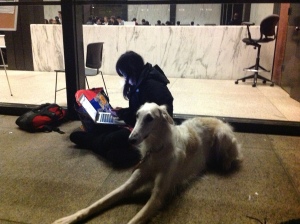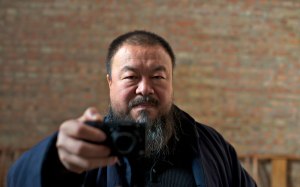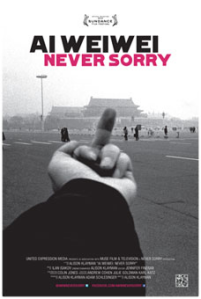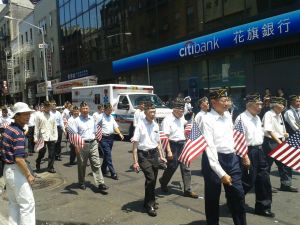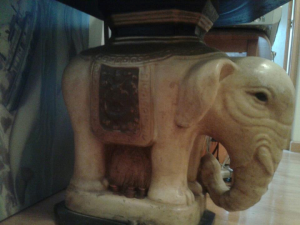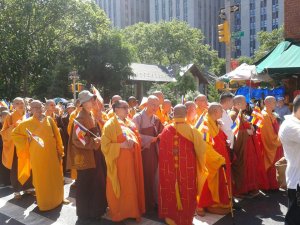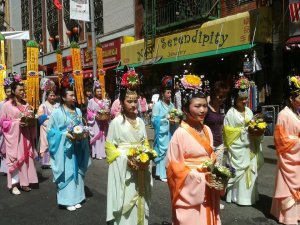By Suelain Moy
I wrote these safety guidelines to help protect our children. Parents, please adapt them as you see fit, according to the age of your child and what you think they can handle. I developed these tactics as a young teenager and woman in New York City, when I would get harassed and threatened on my way to school or on my way home. The goal of this document is to get parents and kids to think strategically about their physical safety, and to make a safety plan “just in case.”
1. Tell your children you love them, and that the violence or harassment is NOT their fault.
2. Tell your child to always tell you if anyone threatens to hurt them or harm them. Talk with them about what they can do to protect themselves and keep themselves safe. They might have to create a distraction, so they can run and get to safety.
3. Do not pick up the hate that other people throw down. It’s the racist who should be ashamed–and not your child. Your child did nothing wrong to cause this.
4. The most important thing is to stay alert. Be aware of your surroundings–especially WHO is near you–and do not get distracted by your cell phone, listening to music, or videogames. Many hate speech incidents and hate crimes have happened on corners, where people are waiting to cross the street. Attackers know you have to wait at the corner before crossing the street. Many people look at their phones while waiting on the corner, but if you’re looking down at your cell phone, you may not notice anyone approaching you or any vehicles or bicycles coming towards you.
You need to be aware of who is around you at all times–in front of you, behind you, and to the sides.
5. Remember that 3 out of 4 hate crimes happen to females. If you can, travel and walk in groups or with a buddy. Some people have gotten away by pretending to wave to an imaginary policeman or neighbor behind their attacker or off in the distance: “Oh, hello, officer!” or “Hi, Mr. Wilson!” When your attacker looks in the direction of where you’re looking and pointing, you run away.
6. Do anything you can to throw off your attacker. Be unpredictable. Run away, yell, act crazy, talk to yourself. Racists and attackers are not expecting you to fight back. They are expecting you to be polite or submissive. This is especially true of the girls. Tell your kids that they do not have to be polite if they feel scared, unsafe, or uncomfortable. They can just start running away, or create a distraction to put more distance between them and an attacker.
The element of surprise has helped me throw off any would-be attackers and escape them. Sometimes as someone gets closer and closer, I will suddenly break out into song, or start muttering to myself loudly about what an awful day I’m having.
7. Yell it back to hell. Shout LOUDLY, at the top of your lungs. I have found that shouting the words “RACIST!” or “PERVERT!” to be very effective in calling attention to a hate crime or hate speech incident. If you have a quiet or shy child, they can pretend they don’t speak any English, shake their heads no, and run away. This way your child does not have to have any interaction with the assailant at all, or explain themselves, or be polite. Some people will stop talking if they think you don’t understand a word they said.
8. Observe/Memorize any identifying features of your attacker. Try to remember what the person looked like: their height, weight, their clothing and shoes, tattoos or scars–anything that could help identify them. This is a skill. Practice it as you’re walking down the street or around the neighborhood.
If you can record your attacker with your cell phone, then do so safely from a distance. Sometimes taking out your cell phone can anger/antagonize attackers even more. Cell phones can be knocked out of kids’ hands. I prefer that kids use their cell phones to call for help: 911, their parents, their friends, the police–and not take their eyes off the attacker.
9. Beware of the attackers who do not wear masks. They might try to spit on you. Many people in New York City have been spit on, and were not expecting it. Keep a clear distance from any strangers, and don’t let them get close enough to spit on you.
10. Get your child a self-defense siren or personal alarm from Amazon to carry in their pocket, or someplace they can reach it easily. If someone threatens them, they can activate the alarm and it will let out a piercing siren or a high-pitched wailing sound. When the loudness of the alarm startles the attacker, tell your child to run away.
11. Long-handled umbrellas can keep attackers at a distance of a few feet, or protect you from being spit on or having any fluids thrown on you. They can be used in self-defense, in case you can’t run away. Older people have used canes or brooms, or picked up a stick to protect themselves. Use what you have on hand.
12. If someone grabs you from behind: Head butt them by using the back of your head, which is very hard, to hit the attacker’s nose, face, or mouth. Or you can go limp, using all of your body weight and the force of gravity to become heavy and slide downwards and out of the lock. They won’t be expecting that either.
13. Sometimes kids may be reluctant to talk. You might have to have more than one conversation with them. Try to connect with them during low-key moments when you’re in the car, or walking them to school. They might have questions while watching the news.
14. Stay safe and look out for each other. If you see someone in trouble, you can:
a) Call 911 for help, or get help.
b) Provide a distraction by greeting the target and pretending to know them. You also can yell, “The cops are coming!” If you feel unsafe, check in with the victim after the harassment and offer them support and assistance.
c) Use your phone to record the incident on video or take a photo of the attacker.
d) Offer to walk with the victim to the police station, or serve as a witness for the police report.
15. Remember different tactics will work in different situations. Do what you can to protect yourself and your child. You can run into a store. You can walk in the middle of the street, where people and cars are more likely to see you, if there’s not too much traffic. You can call 911 on the phone as you’re running away.
16. Follow your gut instincts. If you feel uneasy or uncomfortable around someone for any reason, don’t hesitate to do what’s safe for you and your child first.

